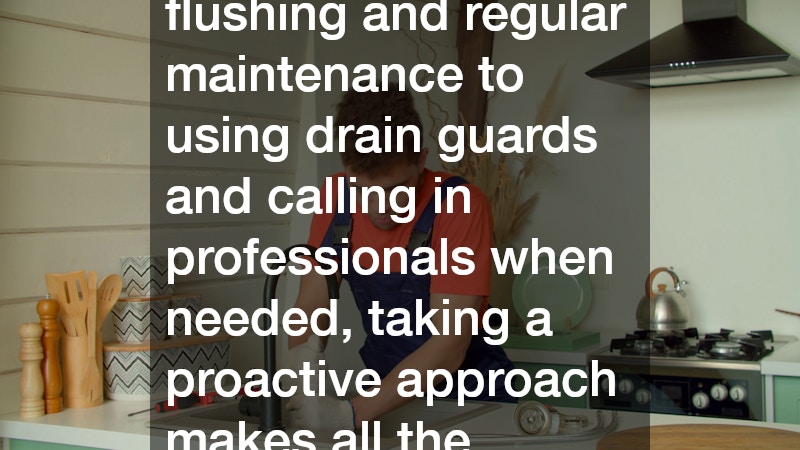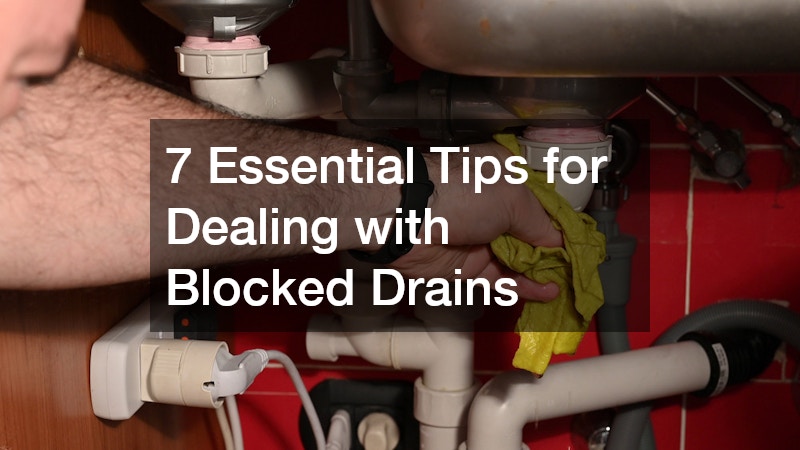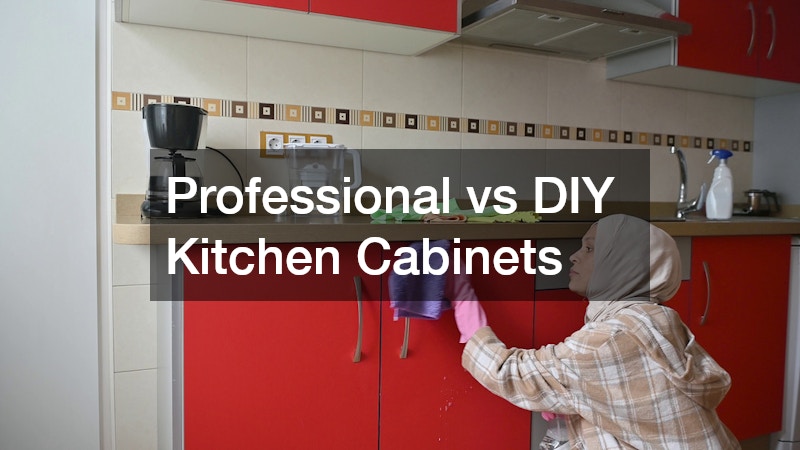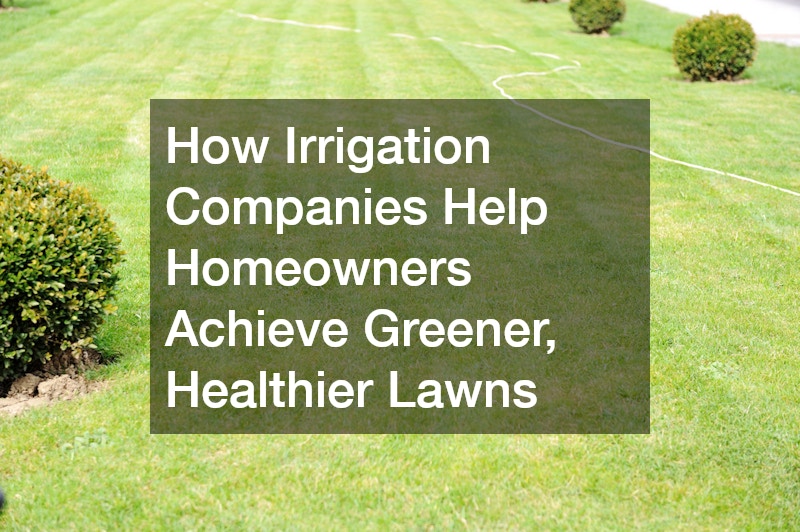Blocked drains are among the most frustrating household issues, often surfacing at the most inconvenient times. From slow-draining sinks to unpleasant odours and even potential water damage, a blocked drain can quickly escalate from a minor nuisance to a major plumbing headache.
Whether you’re a homeowner or a tenant, knowing how to deal with these issues effectively can save you time, money and stress. The following tips are essential for managing and preventing blocked drains before they become costly problems.
Identify Early Warning Signs
Recognising the early signs of a blocked drain is the first step in addressing the issue before it worsens. You may notice water draining more slowly than usual, hear gurgling sounds from your pipes or detect foul smells wafting from your drains. These symptoms indicate a build-up in the pipe, typically caused by accumulated debris, hair, grease or other obstructions. Paying close attention to these warning signs gives you the opportunity to act quickly, potentially avoiding more severe blockages and costly repairs down the track.
Use Hot Water Flushing
One of the simplest methods to address minor clogs is hot water flushing. Pouring a kettle of boiling water down the affected drain can help dissolve soap scum, grease and small debris that may be causing the blockage. This method is particularly effective for kitchen sinks where oil and fat residues tend to build up over time. While not a solution for more severe obstructions, hot water flushing is an easy and inexpensive maintenance habit that can keep your drains flowing freely and reduce the likelihood of future blockages.
Avoid Chemical Drain Cleaners
While it might be tempting to grab a chemical drain cleaner off the supermarket shelf, these products can do more harm than good. Many commercial drain cleaners contain harsh chemicals that can corrode your pipes, especially if used repeatedly. In addition, they may not effectively remove the entire blockage, resulting in a recurring problem. Opting for natural solutions like baking soda and vinegar or calling a licensed plumber when the issue persists, is a more sustainable and safer approach to managing blocked drains.
Invest in a Drain Guard
Prevention is always better than a cure and investing in a drain guard is a proactive measure that can help keep your pipes clear. Drain guards are mesh covers that sit over your plugholes and catch debris such as hair, food scraps and other solid materials before they enter your plumbing system. They’re inexpensive, easy to install and require minimal effort to clean. By using drain guards consistently in kitchens, bathrooms and laundries, you’ll significantly reduce the risk of blockages forming in the first place.
Conduct Regular Cleaning
Keeping your drains clean is an essential part of maintaining your home’s plumbing health. Even if you don’t notice any signs of blocked drains, regular cleaning can prevent build-ups from forming. Flushing your drains weekly with hot water or a combination of baking soda and vinegar can help clear minor obstructions and keep odours at bay. For households with high usage, especially those with large families or frequent guests, this habit becomes even more important. Routine maintenance is often overlooked but plays a key role in the longevity and functionality of your drainage system.
Know When to Call a Professional
Some drainage problems go beyond the scope of DIY remedies. If you’ve tried multiple solutions and the blockage persists or if you experience repeated issues in the same drain, it’s time to call a professional plumber. They have the tools and expertise to diagnose and resolve serious blockages, including those caused by tree roots, damaged pipes or deep obstructions within your plumbing system. Attempting to fix these issues on your own may lead to further damage, increased repair costs and even health hazards. A licensed plumber can offer a long-term solution and advice tailored to your specific situation.
Educate the Household
Effective drain management requires the cooperation of everyone in the home. Educating household members about what should and shouldn’t go down the drain is crucial in preventing future issues. In the kitchen, this means avoiding the disposal of grease, coffee grounds and food particles. In the bathroom, be mindful of hair, soap residue and sanitary products. Children in particular may need reminders about what not to flush or wash down the sink. By promoting responsible usage across the household, you can significantly reduce the chances of blocked drains and ensure your plumbing system remains in good working order.
Keep Your Drains Flowing with Smart, Preventative Care
Blocked drains can quickly become more than just a minor inconvenience, leading to unsanitary conditions, structural damage and costly repairs. However, by following these essential tips, you can address minor issues early and adopt habits that prevent major blockages. From hot water flushing and regular maintenance to using drain guards and calling in professionals when needed, taking a proactive approach makes all the difference. Don’t wait until your drains are completely blocked — a little effort now can save you a lot of trouble later.
.





